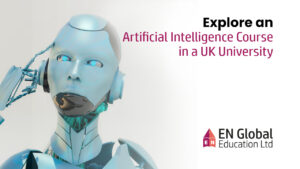Do you still need clarification on the correct level between business analytics and data science? In today’s data-centric world, careers in both fields are highly sought after, offering excellent career prospects and lucrative opportunities. This guide will compare business analytics and data science to help you determine the best study abroad degree program.
What is Business Analytics?
Business analytics uses data to make better business decisions. BA professionals use data to make recommendations to improve an organization’s efficiency, customer satisfaction, and profitability. Business analytics centers that analyze and extract historical data and actionable recommendations are suitable for business strategy formulation.
Key Areas in Business Analysis
- Descriptive analytics – looking at historical information and trying to discover what has happened and what might happen.
- Predictive Analytics – Applying data models to make predictions and support future decision making.
- Prescriptive Analytics – Propose strategies to improve business outcomes based on analytical findings.
Skills Learned in a Business Analytics Degree
The Business Analytics program provides students with a balanced skill set, including:
Data Visualization – Develop meaningful graphics using Tableau or Power BI.
Statistical Analysis – In this context, learn about different statistical methods and understand research as a statistical phenomenon.
Business Strategy – Creating knowledge relevant to organizational goals.
Communicate effectively – Translate research findings into recommendations for key stakeholders.
Common Career Paths in Business Analytics
Graduates with a degree in Business Analytics can explore positions such as:
Business Analyst – Analyzes company data to identify trends and make recommendations for improvements.
Operations Analyst – Focuses on improving operational efficiency using data-driven approaches.
Marketing Analyst – Use data to effectively optimize marketing campaigns and target audiences.
What is Data Science?
Data science includes a combination of programming, statistical analysis, and machine learning. Data science professionals work with big data to find patterns, develop algorithms, and create models. Here, data science is more closely tied to business processes, to the point where it bears no resemblance to traditional business analytics. To process data, a person needs programming knowledge, mathematical training, and knowledge of machine learning principles.
Key Areas of Data Science
- Data Engineering – Organizing raw data into a form that can be easily analyzed.
- Machine Learning – Developing an enabling mechanism that enables computers to learn from database data.
- Big Data Processing – Many organizations today need to analyze large, complex data sets using tools such as Hadoop or Apache Spark.
- Deep learning – applying neural networks to solve complex problems.
Skills Learned in Data Science Course
A Data Science degree provides the following skills −
- Programming – Knowledge of languages such as Python, R, and SQL.
- Machine Learning – Make predictions using supervised and unsupervised learning techniques.
- Data Preparation – D Cleaning and preparing data for analysis.
- Mathematics and Statistics – Understand the fundamentals of machine learning algorithms.
- Hot Jobs in Data Science –
- With a degree in Data Science, you can pursue a variety of careers, including −
- Data Scientists – use statistical methods to draw conclusions and make predictions.
- Data Engineers – Create pipelines to ensure data is organized for easy analysis.
- Machine Learning Engineer – Enumerate scenarios for prediction and automated decision making.



